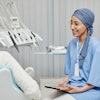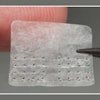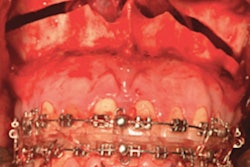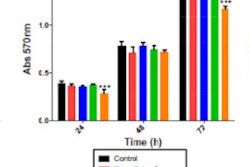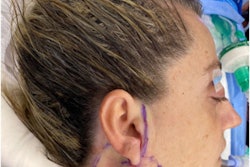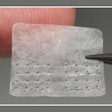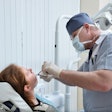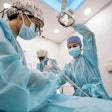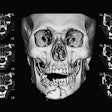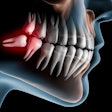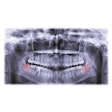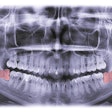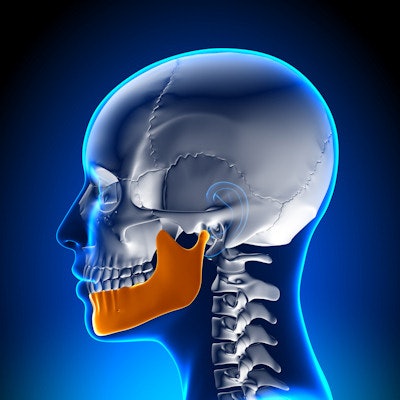
Surgeons from Cedars-Sinai, a nonprofit hospital serving the Los Angeles area, and the Los Angeles Center for Oral & Maxillofacial Surgery, are one of a handful of teams in the U.S. giving patients jaw replacements complete with dental implants in one day.
Typically with jaw reconstruction surgery, a bone is taken from a patient's lower leg and fashioned into a new jaw, but teeth aren't added. Later, patients can have dental implants placed during a separate procedure, though it rarely occurs because patients are fatigued from the jaw surgery or surgeons are hesitant for fear of damaging the reconstruction work, according to a press release dated April 27 from Cedars-Sinai.
"People who have a traditional jaw reconstruction get a new jawbone, but it isn't very functional," Dr. Steven Kupferman, a Cedars-Sinai oral/maxillofacial surgeon, said in the release. "The jaw is meant to talk and chew, and without teeth, it can't do those things as well."
To get patients a more functional reconstruction, the team works with biomedical engineers to preplan each patient's surgery. Engineers use computed tomography scans of a patient's jaw and fibula and an intraoral scan of the person's teeth to create 3D-printed custom guides that are used to cut bones and place dental implants in the fibula bone before it is removed from the patient's leg. Also, a custom fabricated titanium plate is created to hold the transplanted bone in place.
After the implants are placed in the fibula, the damaged jawbone is removed. Then, surgeons cut and move the section of fibula into place and connect the blood vessels and nerves to the transplanted bone. The procedure, which this team of surgeons started performing in March, can take up to 15 hours, according to the release.
Following the procedure and multiple days in the hospital, a patient must wait three months for the new bone to fuse into place. Final prosthetic teeth can be placed once fusing is completed.
"It's like night and day, the quality of life afterward," Dr. Jon Mallen-St. Clair, PhD, a head and neck surgeon at Cedars-Sinai, said in the release. "It's unbelievable how much difference the teeth make."

